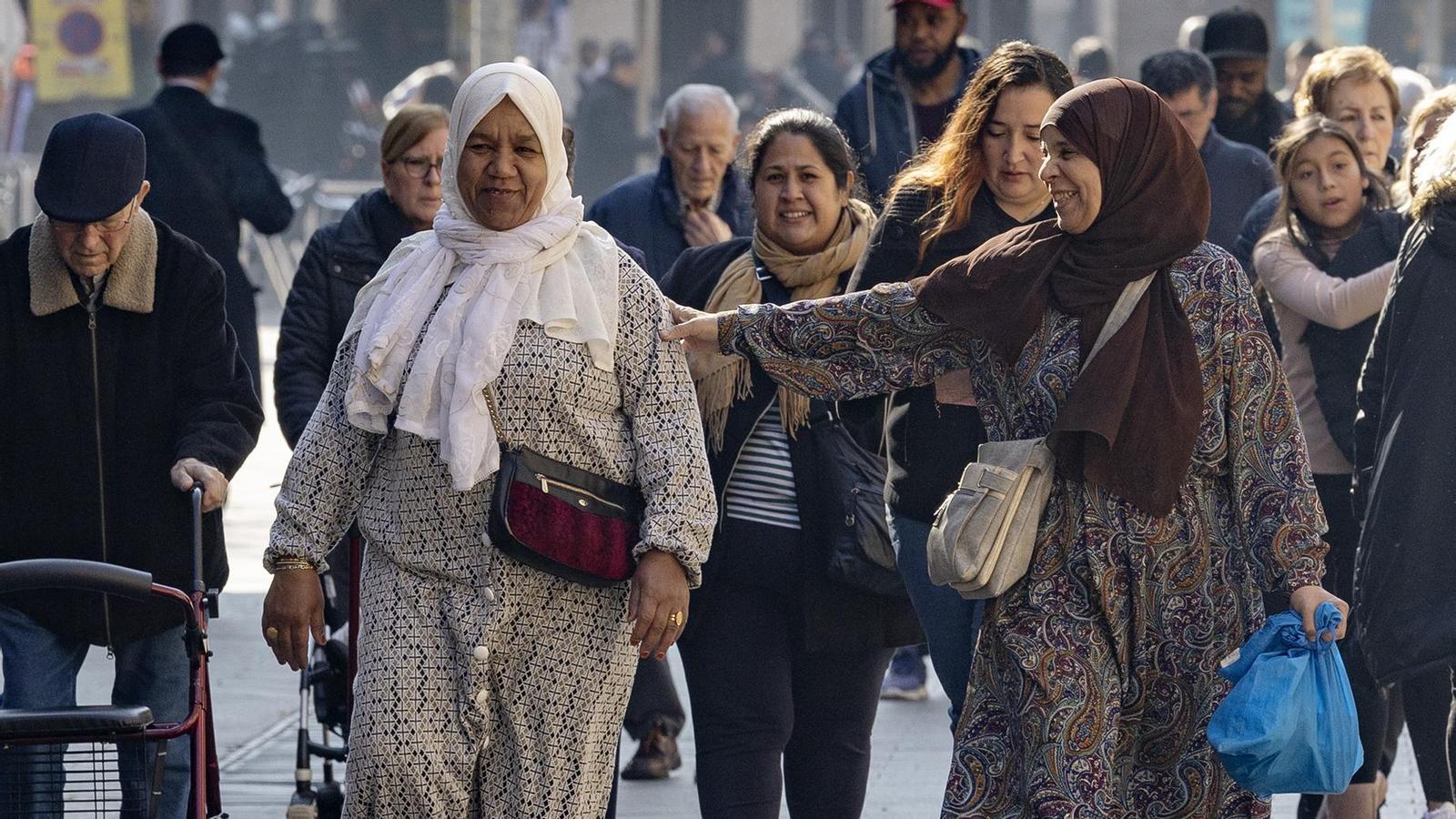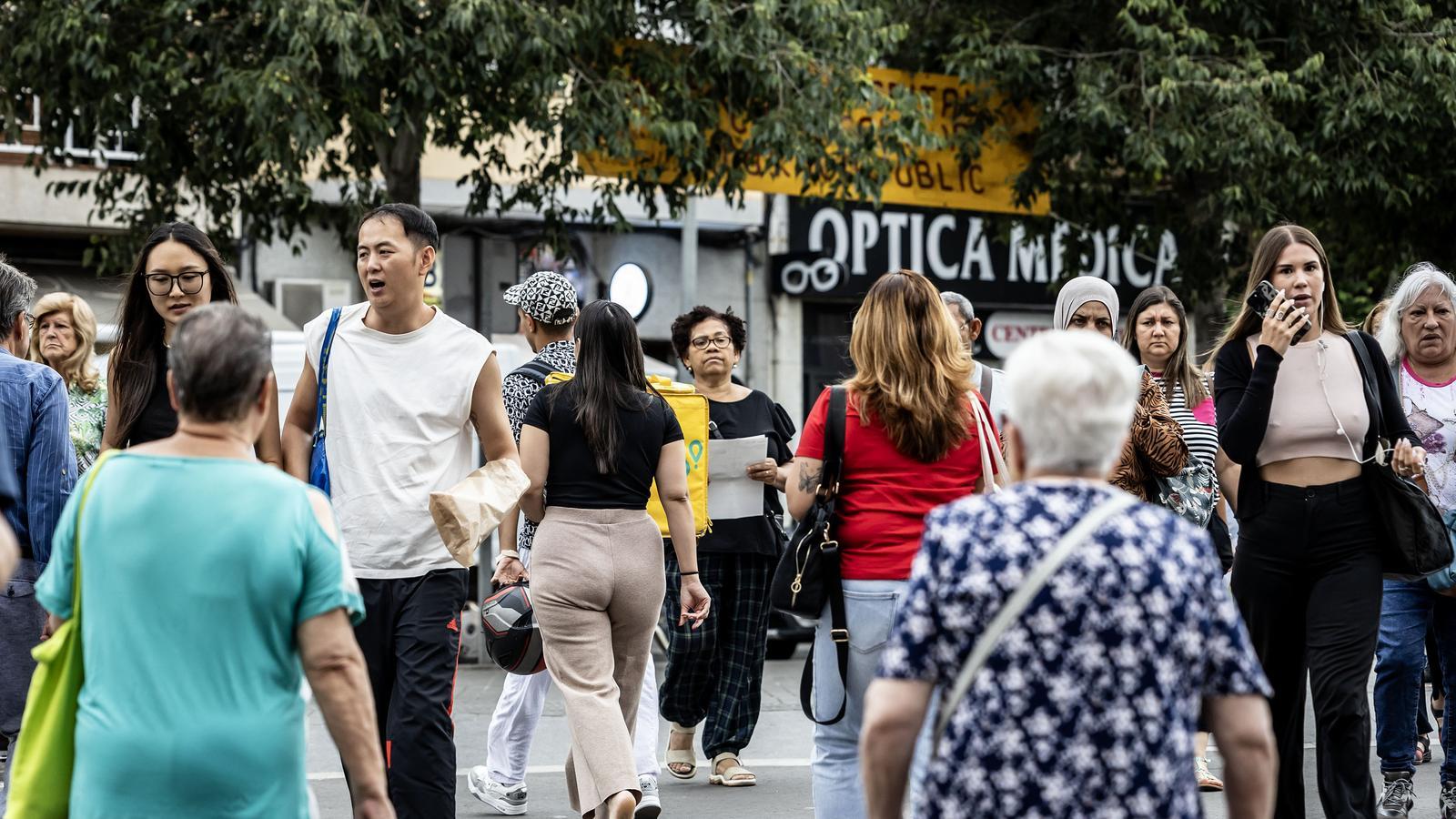What is the left's discourse on immigration?
Catalan parties approach the debate from a humanist perspective and avoid the link with security.

BarcelonaAs the far right intensified its anti-immigration rhetoric, right-wing parties toughened their proposals. The left has distanced itself and called their measures racist. Spanish Prime Minister Pedro Sánchez asserted on Wednesday that immigration "contributes to progress," and the President of the Catalan government, Salvador Illa, has repeatedly defended the premise that "Catalonia is a land of welcome." But their narrative hasn't quite resonated with the public, and the proof is that the far right continues to grow in the polls. What are the left-wing parties proposing in Catalonia, and why doesn't their rhetoric make a dent?
Historically, these parties have approached the issue from an ethical and human dignity perspective. In this sense, they avoid the security prism of the right and far right, which use simple messages that also resonate among the lower classes. Why? Political scientist Toni Rodon attributes this to the theory of ownership of a certain issue, that is, to the fact that when a party starts talking about a certain issue, when people think about it, the party that introduced it immediately comes to mind. "The issue ends up being the property of the party," he concludes. However, sociologist Marina Subirats adds that "the left must make the effort to see how it still exists and organize the entire migration process."
The PSC, ERC, Comuns, and the CUP are committed to measures based on welcoming migrants and guaranteeing their rights once they arrive in Catalonia. "We defend public policies that refer to the welcome and dignified and real integration of people who come to live and work in Catalonia," notes PSC spokesperson Elena Díaz in a conversation with ARA. ERC and Comuns speak of "inclusion," while the CUP uses the term "rootedness." These nuances are grounded in the defense of the perception of the entry of migrants as a positive aspect. "Global mobility is an existing reality" and, consequently, it is necessary to "guarantee legal and safe access routes," notes Commons deputy Andrés García Berrio.
Along the same lines, the CUP sees the migration issue as something that must be addressed "structurally," and goes even further by arguing that "ending capitalism and imperialism" will mean that "no one will be forced to migrate," argues party spokesperson Su Moreno. For Esquerra, any migration policy must guarantee "social cohesion and national belonging" in Catalonia, according to the Republicans' deputy secretary of strategy, Joan Plana.
The Left's Measures
"The left cannot avoid the problem. Responding by simply saying that [migrants] have rights is ignoring a real problem that stems from the growing inequalities in the world. That's why the lower and middle classes are becoming poorer, and when people become poorer, they become very conservative, because if they were better off yesterday than today, I'll stick with yesterday." What measures are the left-wing parties proposing?
The Socialists focus on developing public policies that strengthen public services, as well as policies to address racist discourse. In the latter case, Díaz highlights the Human Rights Advisory Council created by the government to combat hate speech and wants it to be coordinated with the study commission on fascism, racism, and hate speech created in Parliament. These measures are shared by the rest of the left-wing forces. However, Esquerra also focuses its discourse on Catalonia having full jurisdiction over immigration to regulate it "from a human rights perspective." In this regard, they propose creating a "legal framework for immigration and international protection" that would allow for the "simplification and streamlining of immigration procedures." In its electoral platform for the last Catalan elections, Esquerra also proposed "guaranteeing the registration" of migrants in all municipalities, "regardless of their administrative status."
The Republicans, like Comuns and the CUP, also advocate the repeal of the immigration law and the closure of the CIE (Central Immigration and Customs Enforcement Administration). The party led by Jéssica Albiach in Parliament considers the "regularization of migrants in an irregular administrative situation" a priority. This issue is already being processed in Congress with the ILP (Institutional Revolutionary Party), which proposes regularizing half a million immigrants. A policy also advocated by the Cuperos (Coup) party, which, in its electoral platform for last year's Catalan elections, also advocated for "regular employment and residence permits for immigrants so they can access all services on equal terms." "We must promote social justice policies, implement reception policies, and guarantee access to the census," Moreno points out.
An anti-immigration left?
None of the Catalan left-wing parties advocate limiting the entry of immigrants, but this is an issue that left-wing parties in some European countries have championed. This happened in Germany, where Alianza, a left-wing party with an anti-immigration rhetoric, ran in the last elections. It failed to catch on because its representative, Sahra Wagenknecht, was excluded from the German Parliament. "When left-wing or social democratic parties try to imitate them [on the right or far right], they lose votes," adds political scientist Toni Rodon.
But Wagenknecht's rhetoric has not only reached Germany; it is also quite present in Scandinavian countries. Danish Prime Minister Mette Frederiksen is a socialist, but she has endorsed the rhetoric of far-right Italian Prime Minister Giorgia Meloni, who advocates the deportation of people living illegally in the European Union. British Labour Party Prime Minister Keir Starmer, who is the UK's prime minister, has taken a similar stance. Anti-immigration theses have not yet reached the Catalan left, and Rodon sees it as unlikely to catch on in the short term. "The fact that the far right monopolizes these positions makes it more difficult," says the political scientist, who links this to the fact that, in Europe, the far right has held significant sway for years. Subirats agrees, although he warns: "At a time when the Catalan Alliance is rising in Catalonia, the left may also take a turn with anti-immigration overtones."



